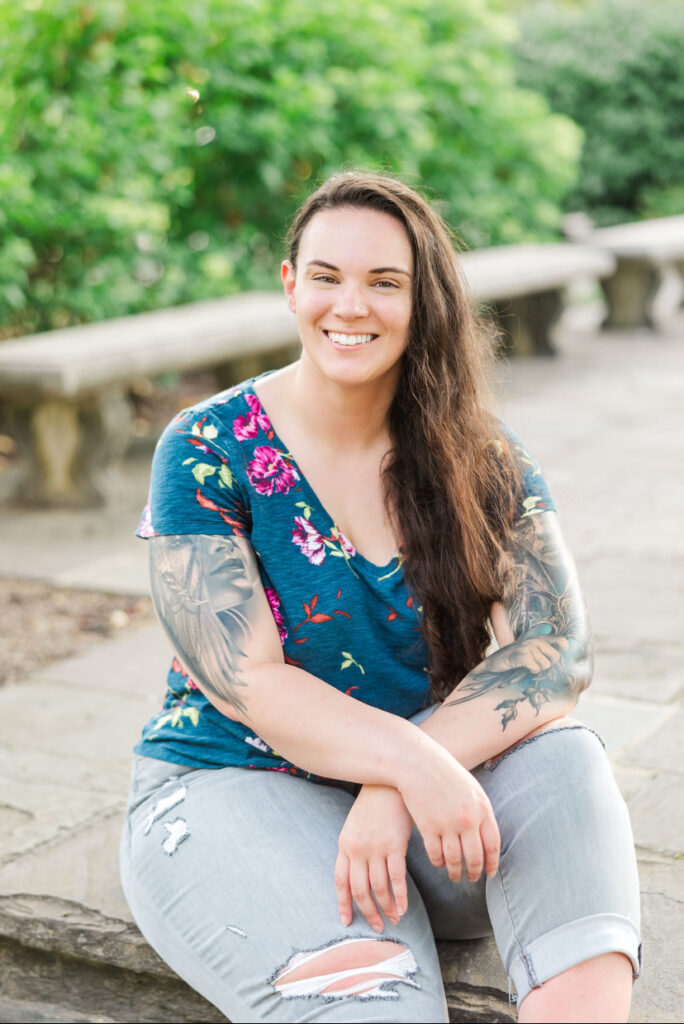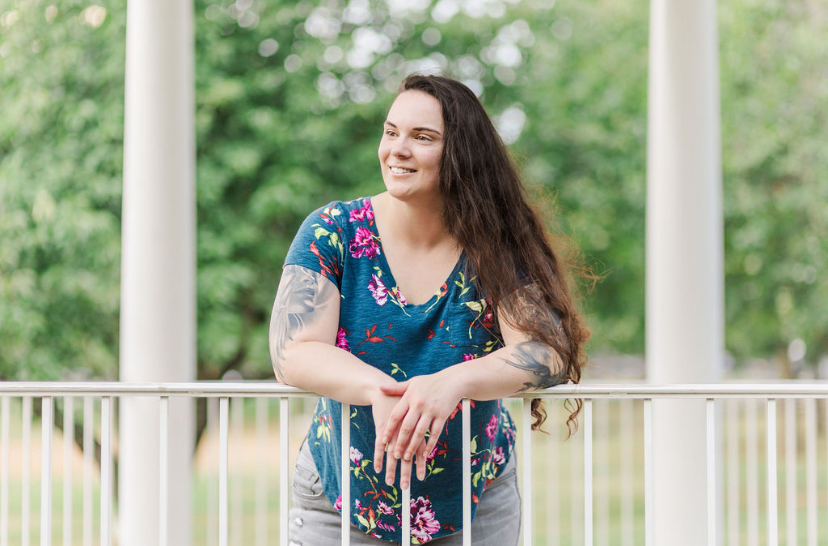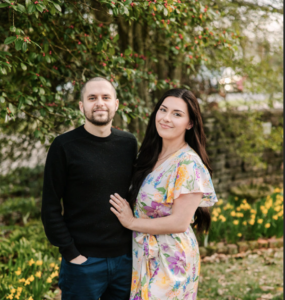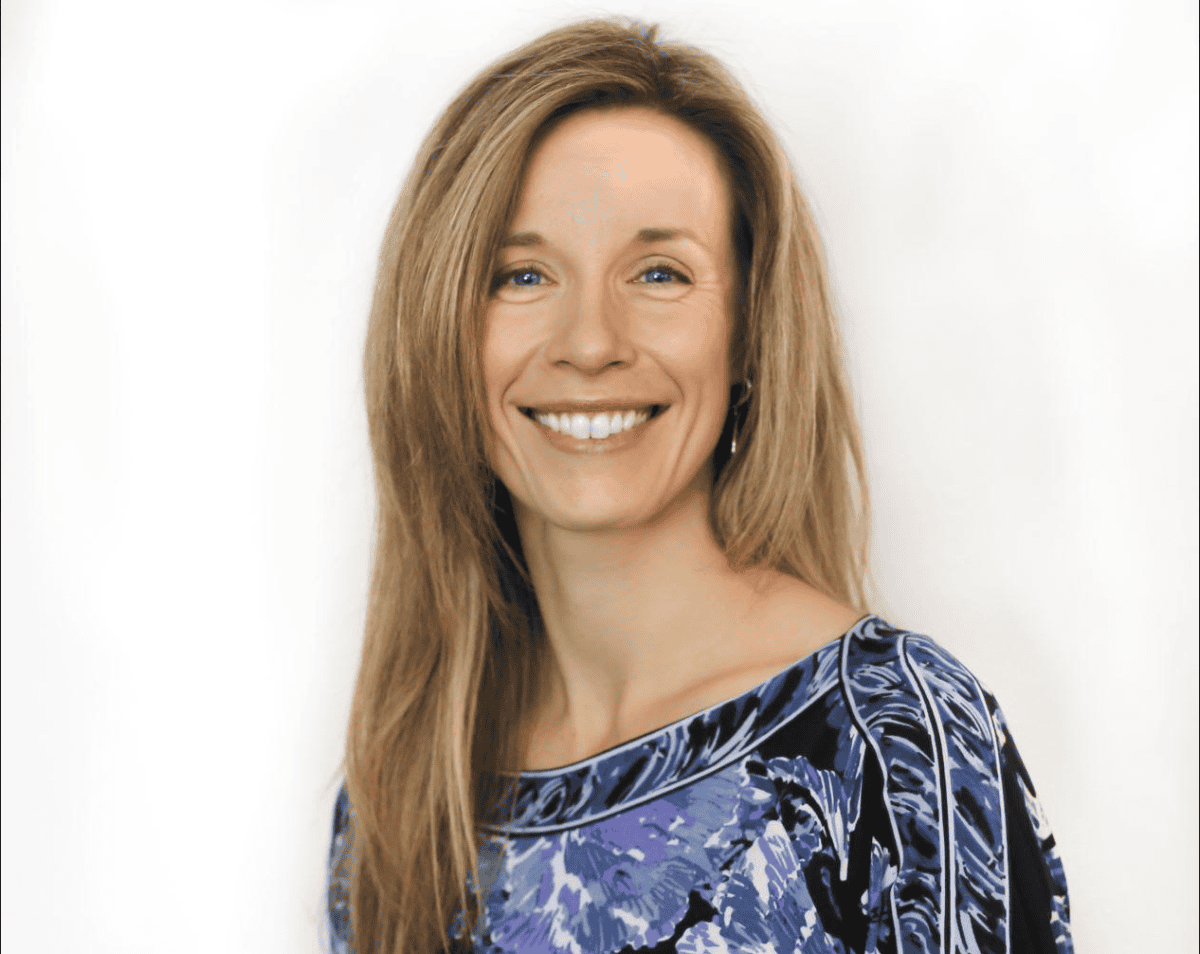Catherine Cabrera’s journey to founding Inner Strength Counseling & Coaching is a testament to resilience and transformation. Born out of one of the most challenging periods of her life, Catherine turned her personal pain into a powerful platform to help others heal. After enduring a deeply abusive relationship, she refused to be defined by her struggles. Instead, she channeled her experiences into a mission to support women facing trauma and mental health challenges. Her story is a reminder that even in our darkest moments, there is the potential for growth and the strength to rebuild a life filled with purpose and empowerment.
What inspired you to start Inner Strength Counseling & Coaching, and how did you begin this
journey?
Inner Strength Counseling & Coaching was created after what was one of the most difficult times
of my life. I began my career as a therapist in 2020; however, in 2022, I went through the
catastrophic ending of what I later learned was not only an emotionally abusive relationship, but
also a relationship with a narcissist. Through this long, drawn-out breakup, I hit rock bottom – I
had lost myself in that relationship and had no idea who I was without it. But when things were
finally over, I refused to view myself as a victim. While I’ve had the displeasure of experiencing
multiple toxic and abusive relationships, this one was my wake-up call.
The same week the relationship finally ended, I took a chance on myself and began my own
virtual private practice. With my experience as motivation, I shifted my clinical focus to helping
other women overcome their trauma, anxiety, and related mental health challenges. I believe
leaning into a person’s strengths, interests, and personality traits can help them process their
experiences in a way that’s unique to them, as well as build confidence, self-compassion, and
self-trust – all of which are diminished through narcissistic, abusive, and toxic relationships.

What are some of the most common struggles your clients face, and how do you support them
through these challenges?
Over the years, I’ve noticed a couple of themes regarding the challenges clients are facing,
namely people-pleasing, perfectionism, questioning their identity outside of relationships, and
difficulty showing up for themselves (self-compassion, boundary setting, etc.). My approach to
helping support them begins with acknowledging their strengths, hobbies, and goals. From there,
we explore their relationship with themselves, including the impact of past traumas, underlying
beliefs, and norms they grew up with. The first goal of our work is to help them build a sense of
trust with themselves and gain a better understanding of what their emotions are trying to tell
them. Once they become more acquainted with how their emotional mind is operating, we’re able
to work through emotion regulation and showing up for themselves. In doing this, self-trust is
built and fostered, making room for self-compassion and behaviors that support this, all of which
help build confidence along the way.
How do you manage your own mental health while helping others navigate their struggles?
It can be tough to manage my own mental health while helping my clients through theirs;
however, through years of practice, I’m now able to enforce boundaries with myself to keep work
and personal challenges separate. In some cases, my work and personal lives mix (I’m human
after all!), so when that happens, I make sure to prioritize myself when I have free time, while
focusing on the client in front of me when I’m in a session with them. Some of my favorite
self-care strategies include setting aside time each morning to go to the gym – weightlifting is one
of my favorite hobbies – and sticking to my routine, both in my personal and professional lives.
By doing this, it helps me ensure I have time to care for myself while I’m holding space for my
clients each day.
What are some of the biggest challenges you’ve encountered in your career as a counselor and
coach, and how have you overcome them?
The biggest challenges I’ve faced in my career haven’t been related to the clinical side, but to the
impacts of restrictions that come with being a Resident (working toward obtaining licensure). In
Virginia, there are some limitations Residents face that make the licensing process more difficult.
For example, generally speaking, Residents are not allowed to panel with insurance companies,
and clients who wish to utilize their out-of-network benefits may not be able to because insurance
companies often view Residents as “less legit” than a licensed therapist. With this in mind, it can
limit the Resident’s ability to build a caseload.
Simultaneously, Residents are required to receive supervision throughout the duration of their
Residency and, for many, this means paying for supervision and a pay split. So you add these
things together – paying for required supervision, pay splits with a supervisor/employer, and often
not being able to utilize typical routes of increasing their caseload – it makes for a very financially
straining 2-6 years of Residency, without including student loans from the required Master’s
degree. While it’s not a challenge unique to me, it’s a systemic issue that makes it difficult for
early-career therapists to build themselves and their careers up, often resulting in Residents not
getting licensed and changing careers.
How do you stay motivated and inspired in your work, especially during difficult times?
Naturally, motivation is going to ebb and flow. When things get difficult, I try to focus on the big
picture – this moment or situation may be challenging, but that doesn’t mean it’s impossible to get
through. At the same time, I also allow myself to feel the impact of the difficulty (anxiety, anger,
sadness, etc.). I’ve found allowing myself to sit with my emotional experience helps me think
more clearly and remain in line with my personal values and beliefs. Letting the emotions come
and go freely gives me the opportunity to process them however I may need to, thus shortening
the duration and decreasing the intensity of the emotions themselves.
How do you approach the healing process for someone dealing with deep-seated trauma or
anxiety?
The healing process is going to be individualized and unique to the person and their experience.
However, the bare bones of my approach remain – I inform clients that the healing process will
take time, patience, and hard work. We move at their pace, but I also gently challenge them in
accordance with their goals. When healing from trauma and anxiety, there’s typically an element
of mistrust with the self – questioning your own judgment, feeling unsafe in your own body, the
underlying fear that everyone is going to hurt you in the way you’ve been hurt before – making
the initial phase of healing to process wounds and the ongoing impact, building self-trust, and
learning how to experience emotions safely. This is done gradually both in and outside of
sessions. From there, the healing process becomes more unique and dependent on the person’s
experiences.
What strategies do you recommend for women who are struggling with self-doubt or feeling
overwhelmed in their personal or professional lives?
For women who are struggling with self-doubt or overwhelm, I encourage you to take a
non-judgemental personal inventory to explore the ‘why’. Without applying judgment, reflect on
why you doubt yourself, why you’re feeling overwhelmed, etc. and with that information, you
can better cater to what you feel you’re missing. This could be you’re feeling unheard or
invalidated. Maybe others question you or you’ve regretted previous choices. Or even you don’t
feel emotionally safe enough to delegate tasks to others, so you instead take everything on
yourself. Whatever the reasons, by taking time to reflect and giving yourself the space for
self-exploration, you can make changes to meet unmet needs, communicate to others, or seek
professional support to help you process and move forward according to your goals/desires.
How do you ensure that your practice remains empathetic and client-centered?
With my practice being a single-provider operation, it’s easier to ensure the practice is runned in
line with my values and beliefs, including empathy and remaining client-focused. Personally, my
demeanor is naturally empathetic and focused on helping others, as it’s part of what led me to my
career as a therapist. At the same time, I feel providing empathy and caring for myself is part of
what allows me to remain focused on clients. For example, sometimes I need to take a sick day or
raise rates when the economy is making it difficult to sustain my current practices and policies,
but in showing up and caring for myself in these ways, it helps me show up authentically with
clients and help support them to the best of my ability without facing burnout.
What advice would you give to someone considering a career in counseling or coaching?
My main piece of advice to anyone considering a career in counseling is to go to therapy yourself.
Personally, this has helped me better empathize with new clients, especially those who have never
been to therapy before. It’s a vulnerable and intimidating experience, and unless you’ve been
there yourself, it can be difficult to understand the level of vulnerability and constructive
discomfort your clients face in the therapeutic space.
How do you envision the future of mental health and coaching, and what role do you hope to
play in it?
When looking at the big picture, my hope is that seeking therapy and mental health support will
continue to be discussed openly and become less taboo over time. I realize I can’t do that all on
my own – it’s a systemic operation; however, my goal is to be a point of support and a beacon for
those who are struggling and want better for themselves. My desire is to help clients rediscover
the strength they possess and take the journey with them to create the life they desire. Hearing the
pride and excitement in a client’s voice when they overcome a challenge or acknowledge their
progress is the most rewarding piece of my job, and it’s an honor for my clients to trust me and
allow me into their lives.
What message or piece of advice would you offer to other women who are trying to build a life
they love while facing their own challenges?
My main advice would be to think of the life you envision as your North Star. There’s always
going to be obstacles and challenges in life, but each decision we make can help us move toward
or away from that life. Once I started viewing decisions and challenges in this way, it helped me
shift to focusing on the process rather than only the outcome. Give yourself time to be sad, angry,
anxious, etc., but remember why you’re working toward that life and make adjustments as
needed. The challenges can be painful and difficult to handle, but sometimes, they can also help
you shift and move toward your vision.
IG and Threads: @catherinecabrera.isc
W: www.innerstrengthcounselingllc.net






